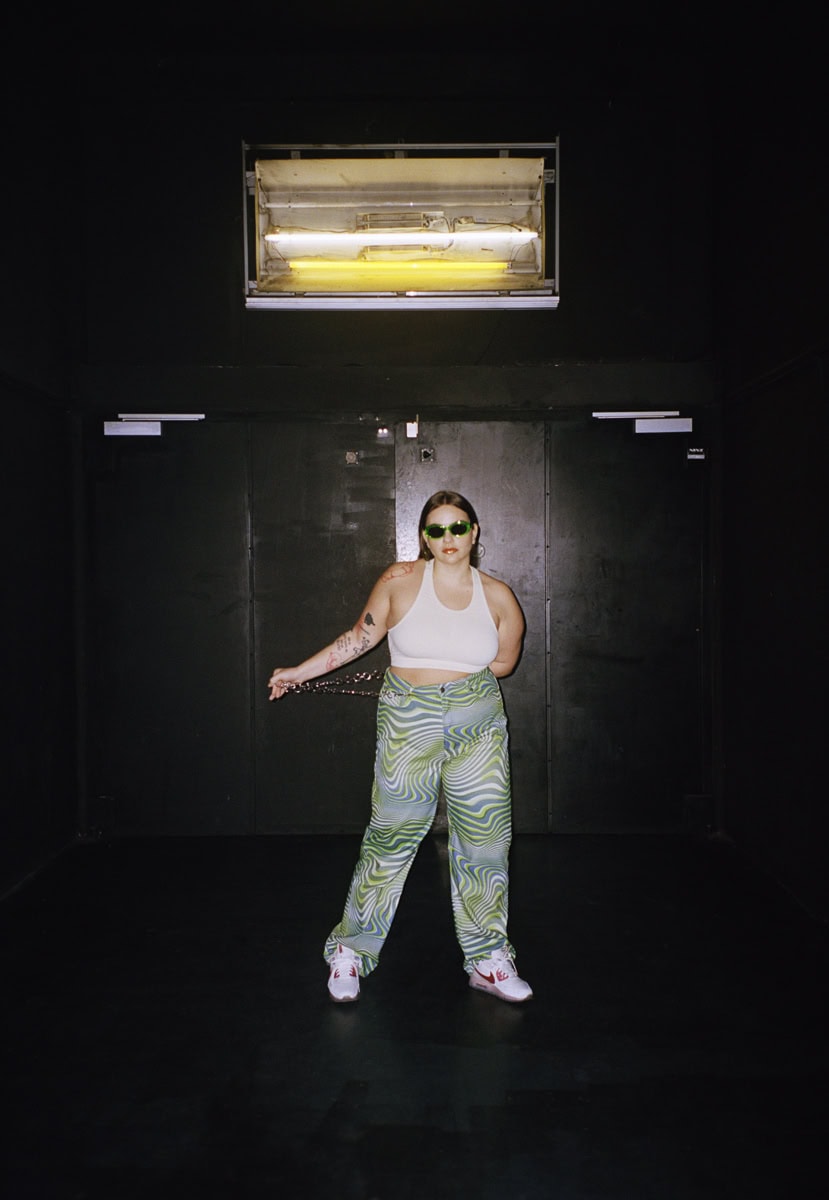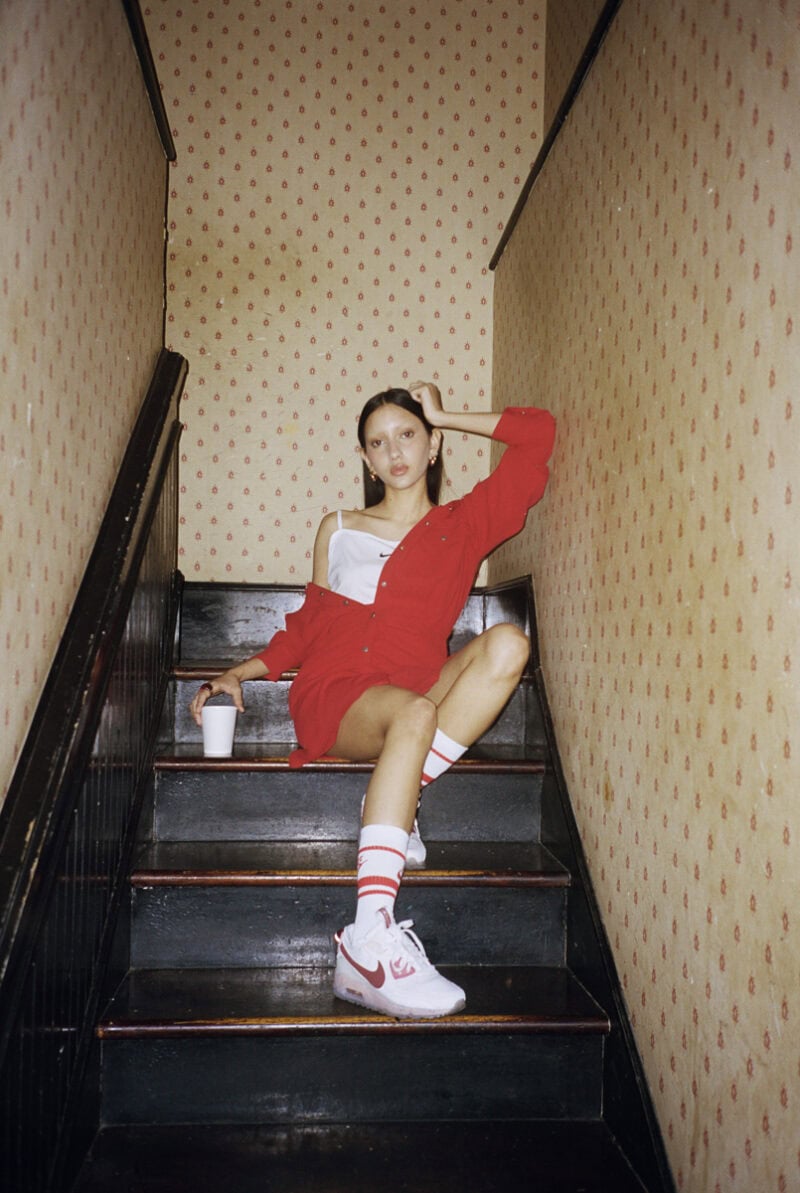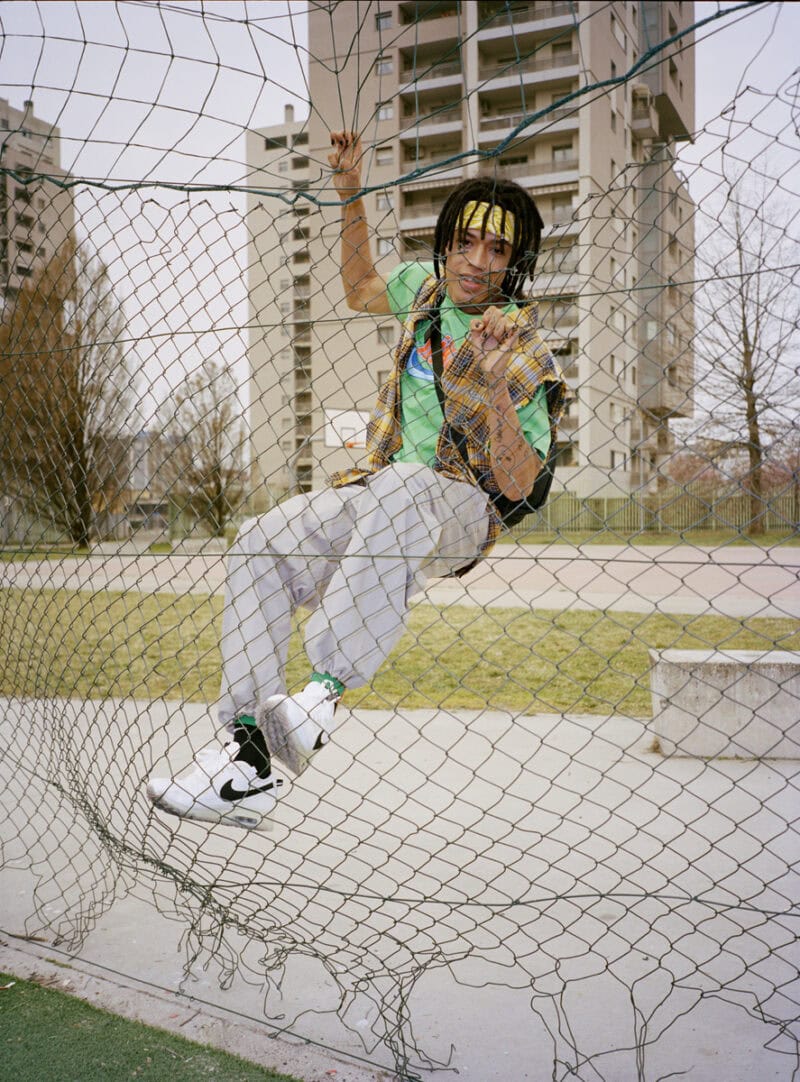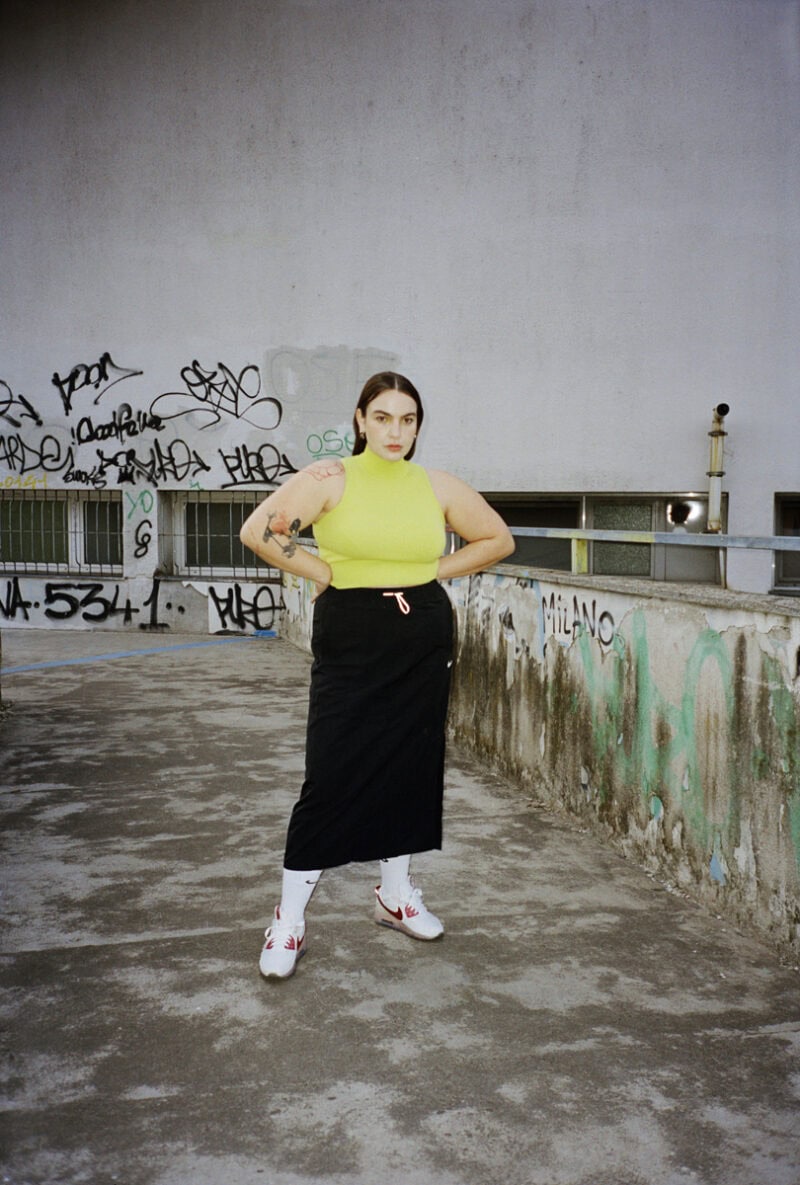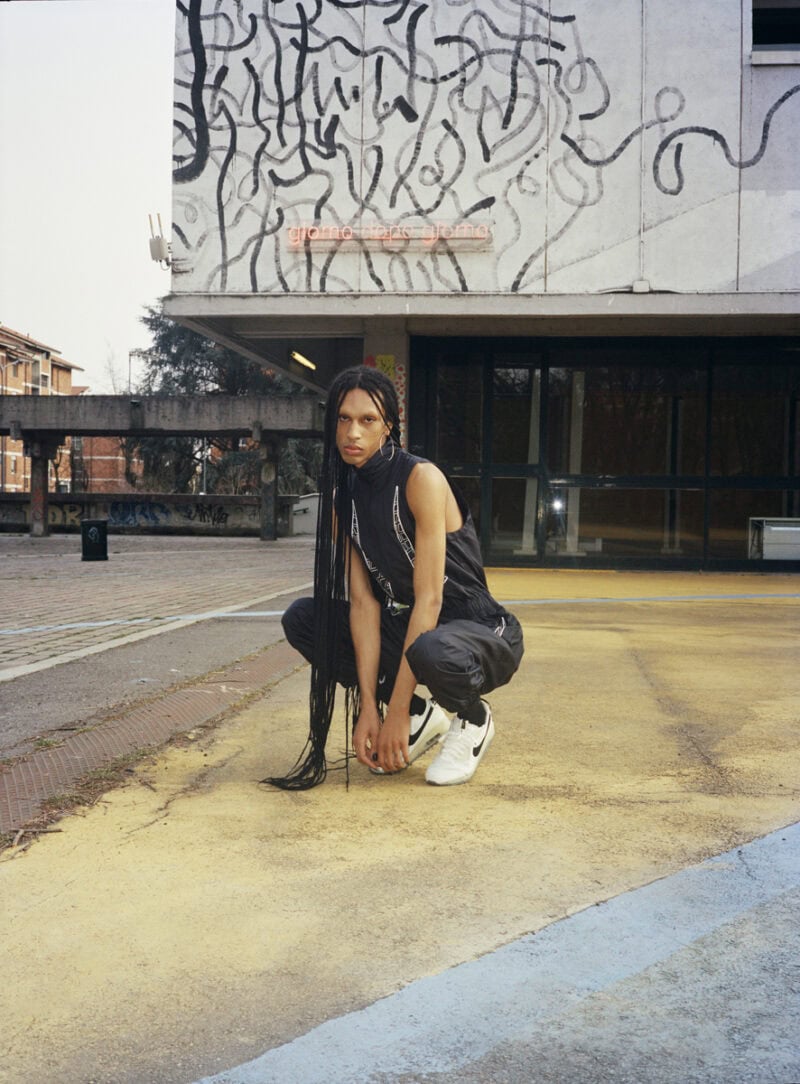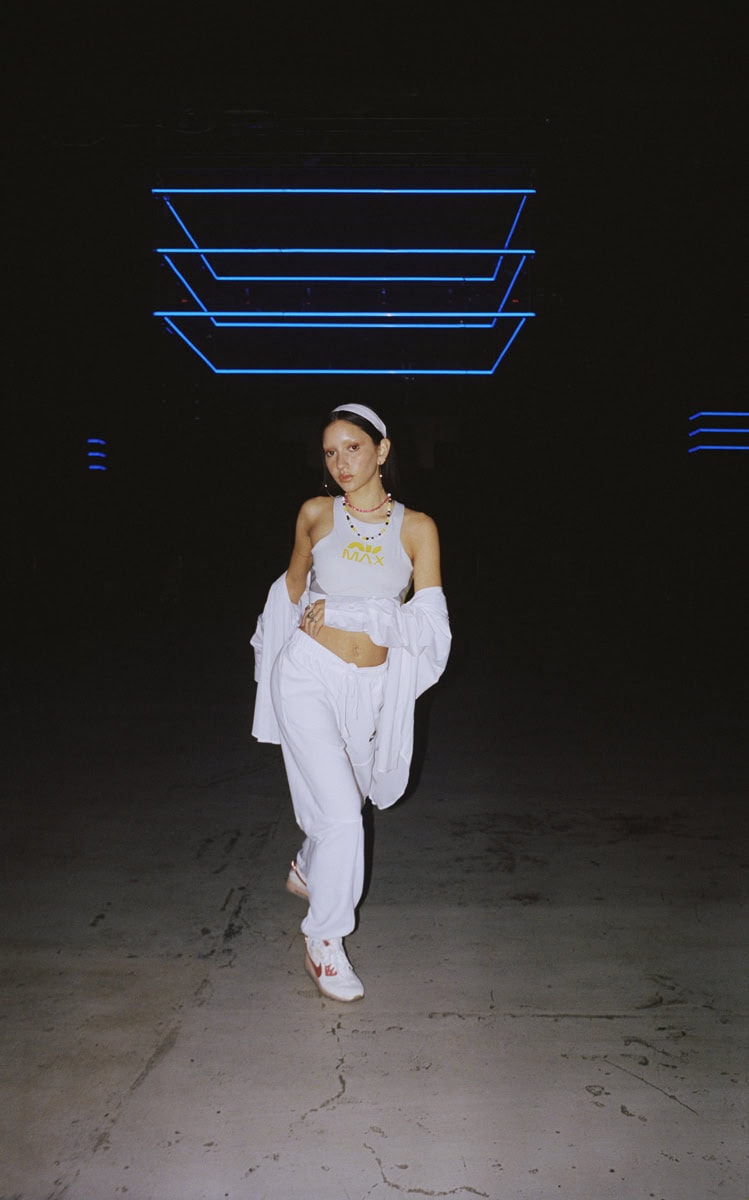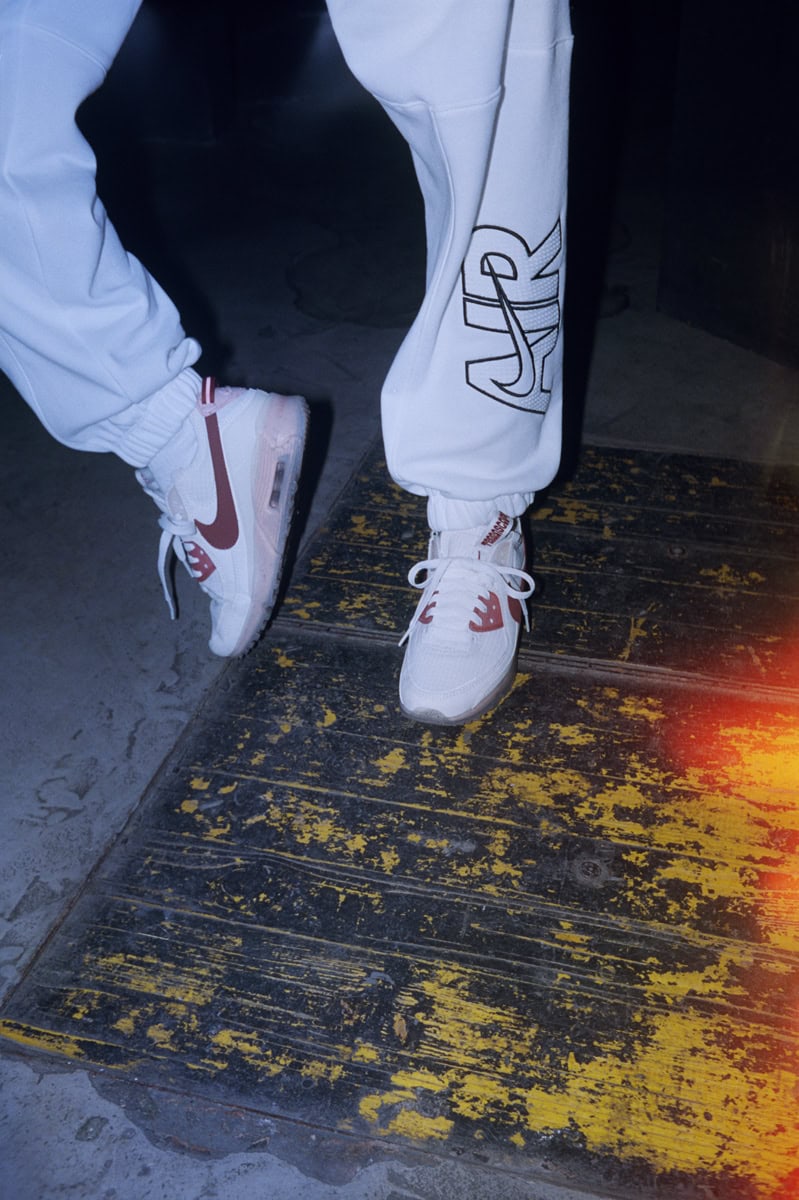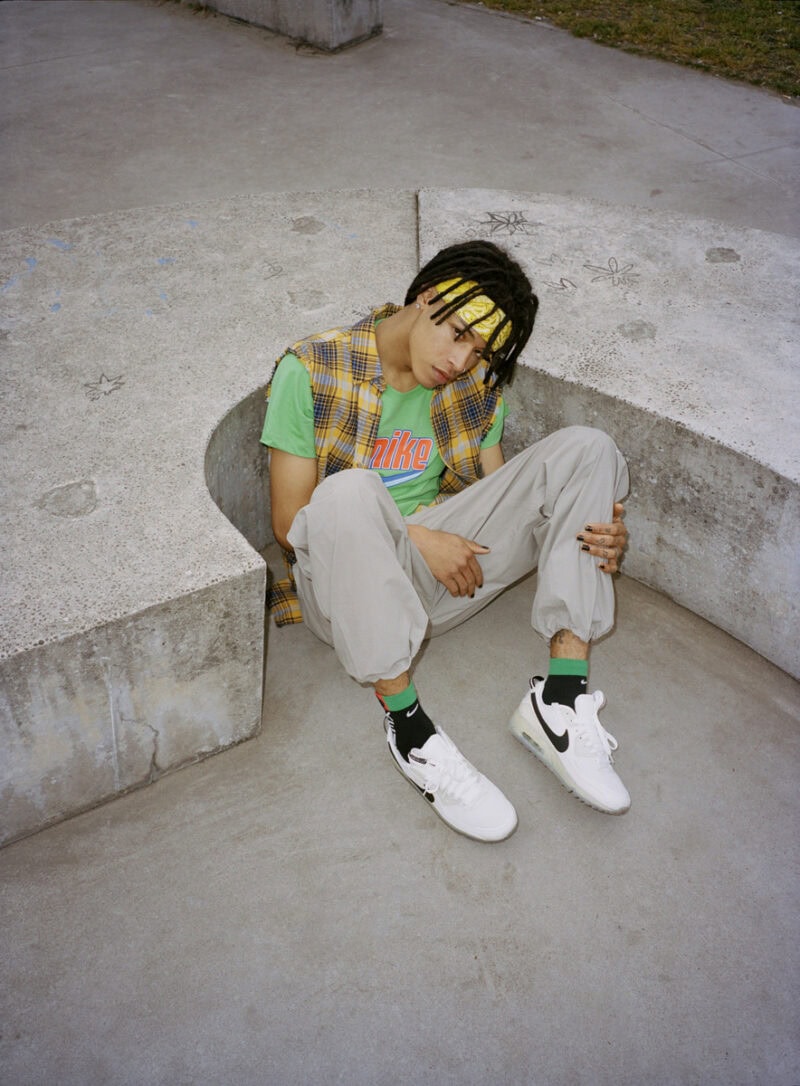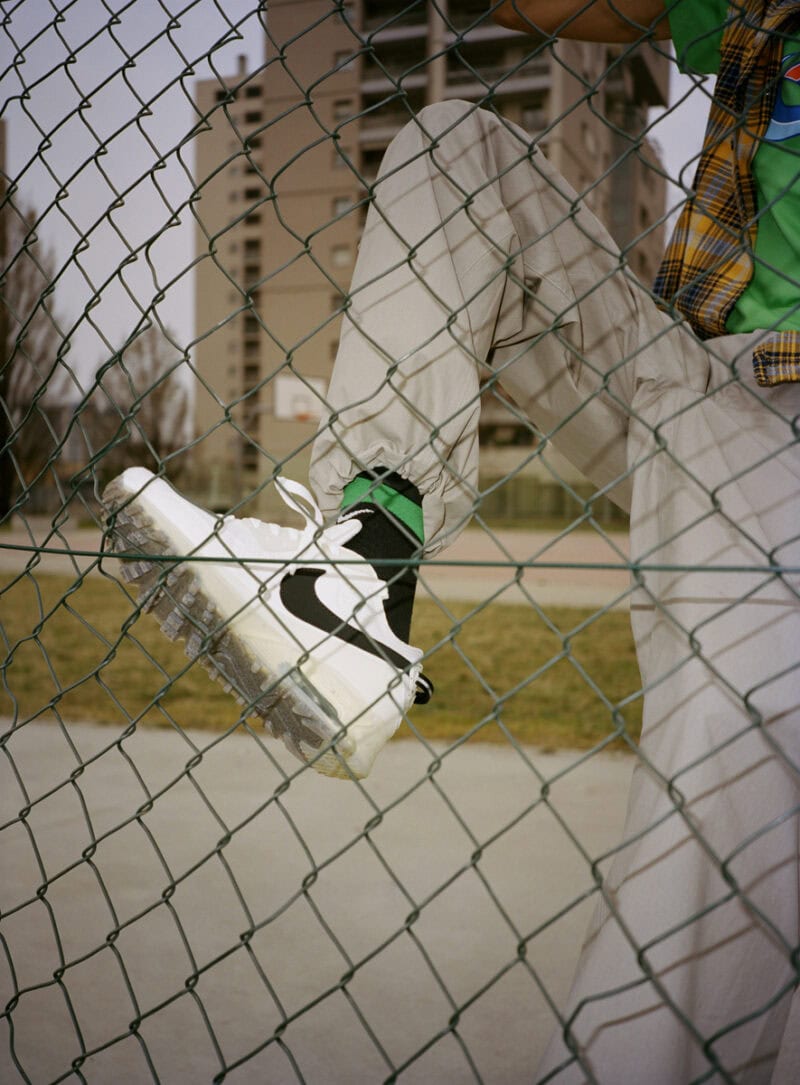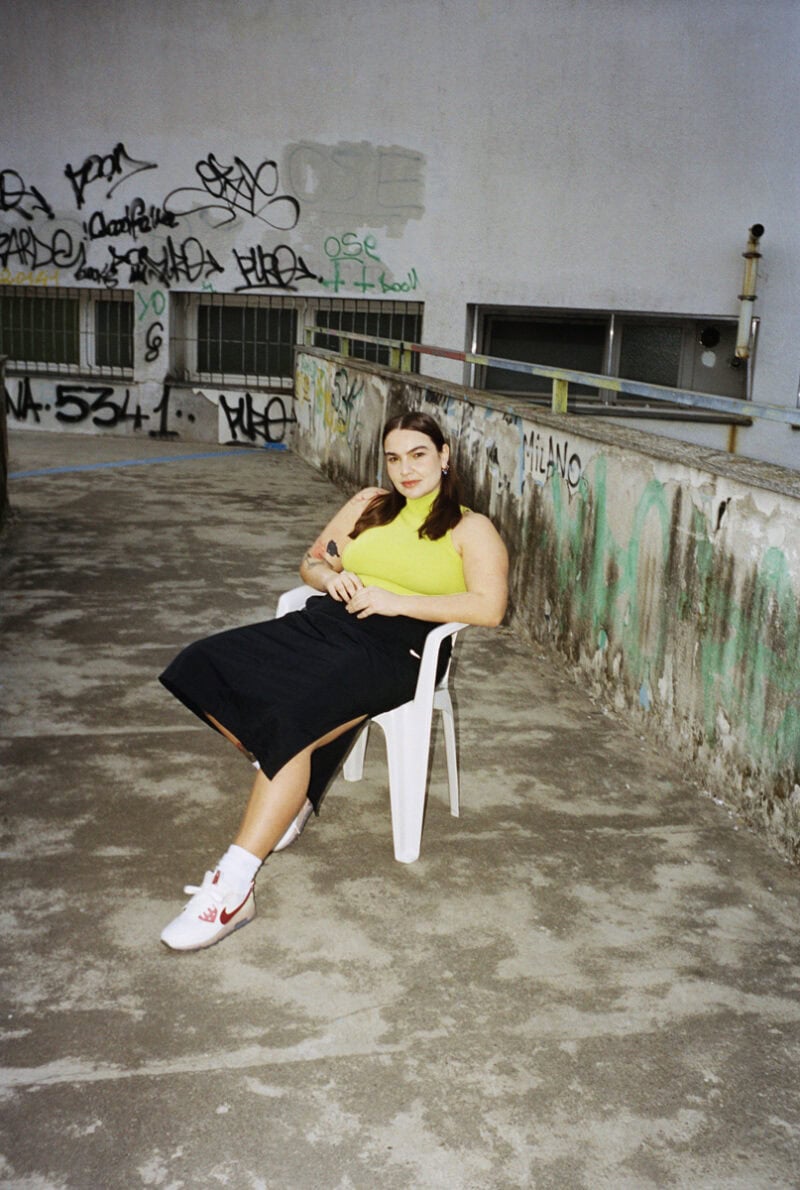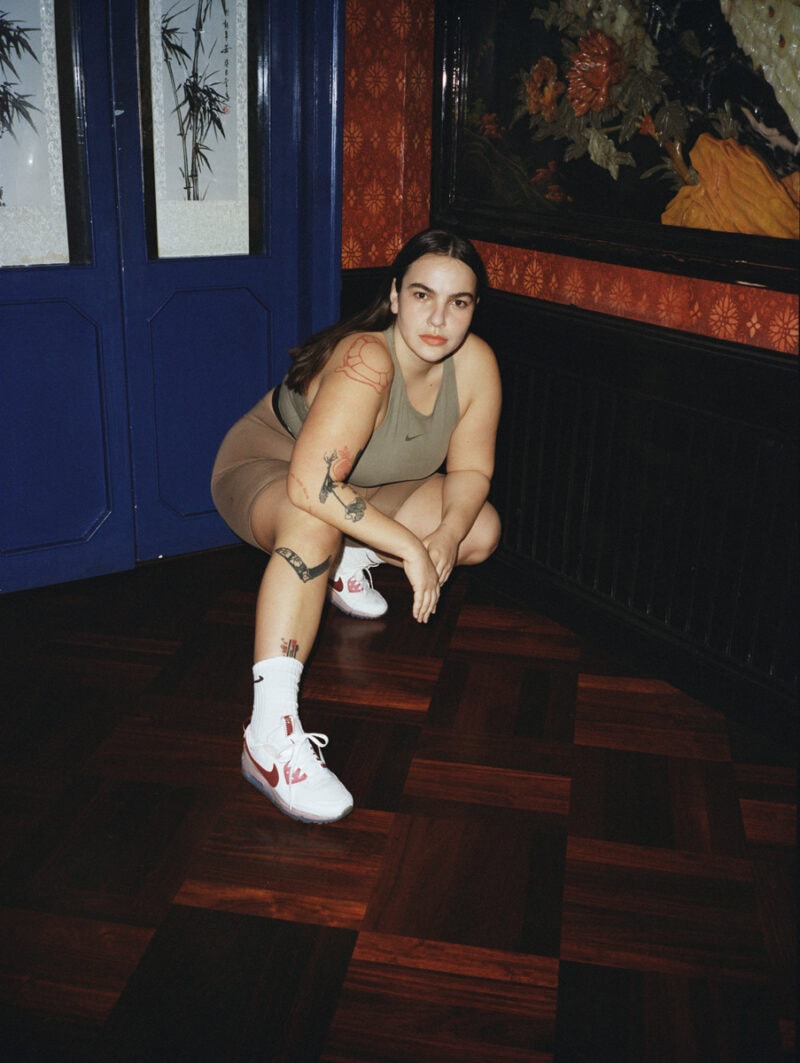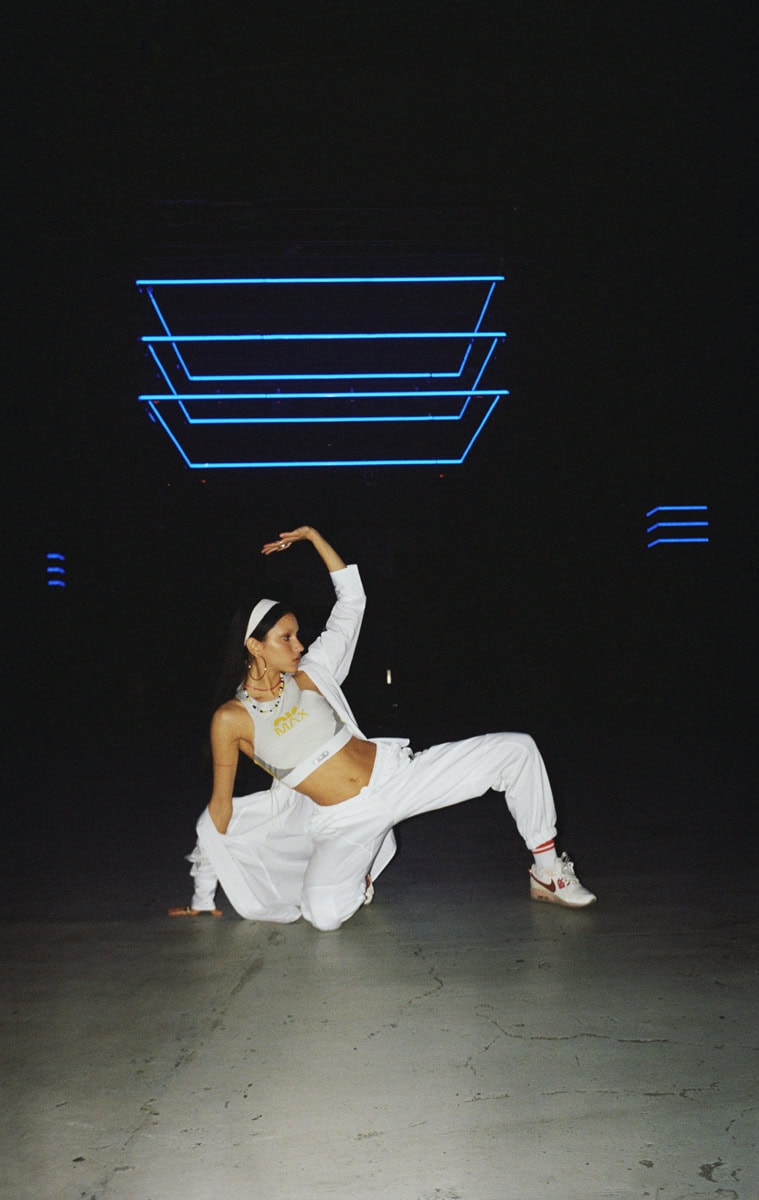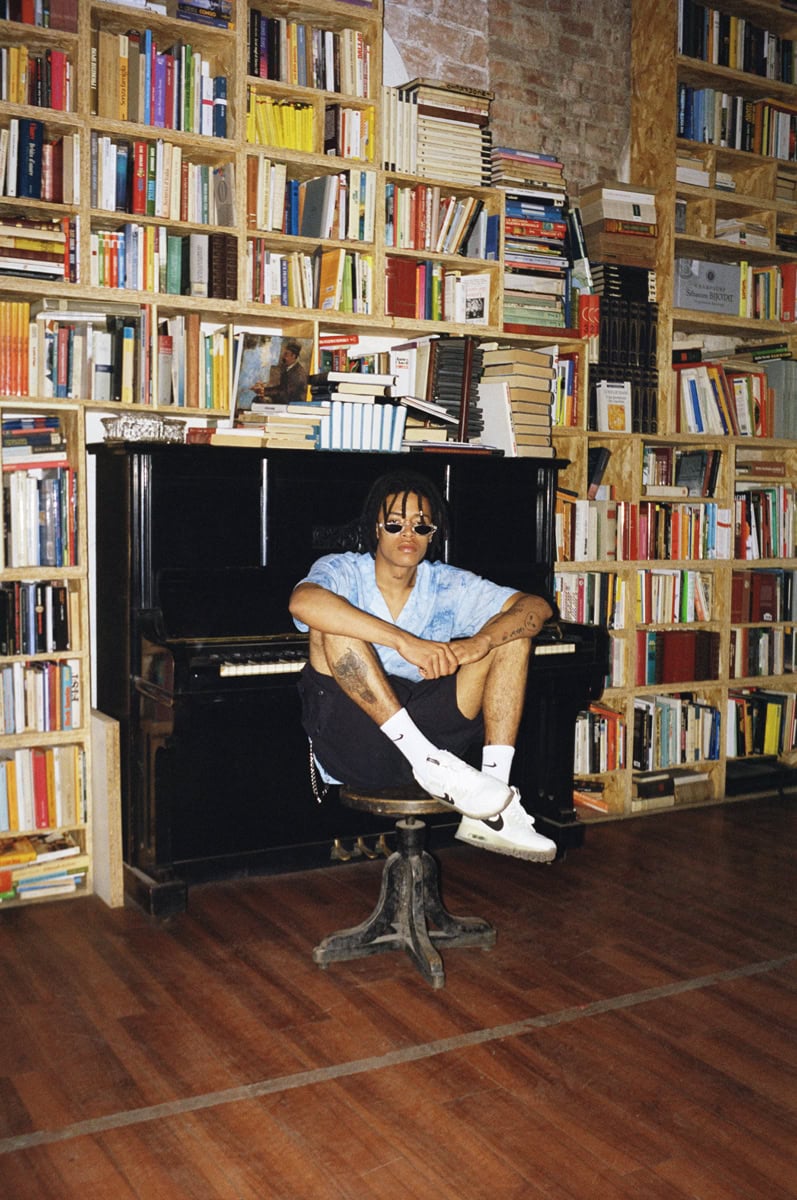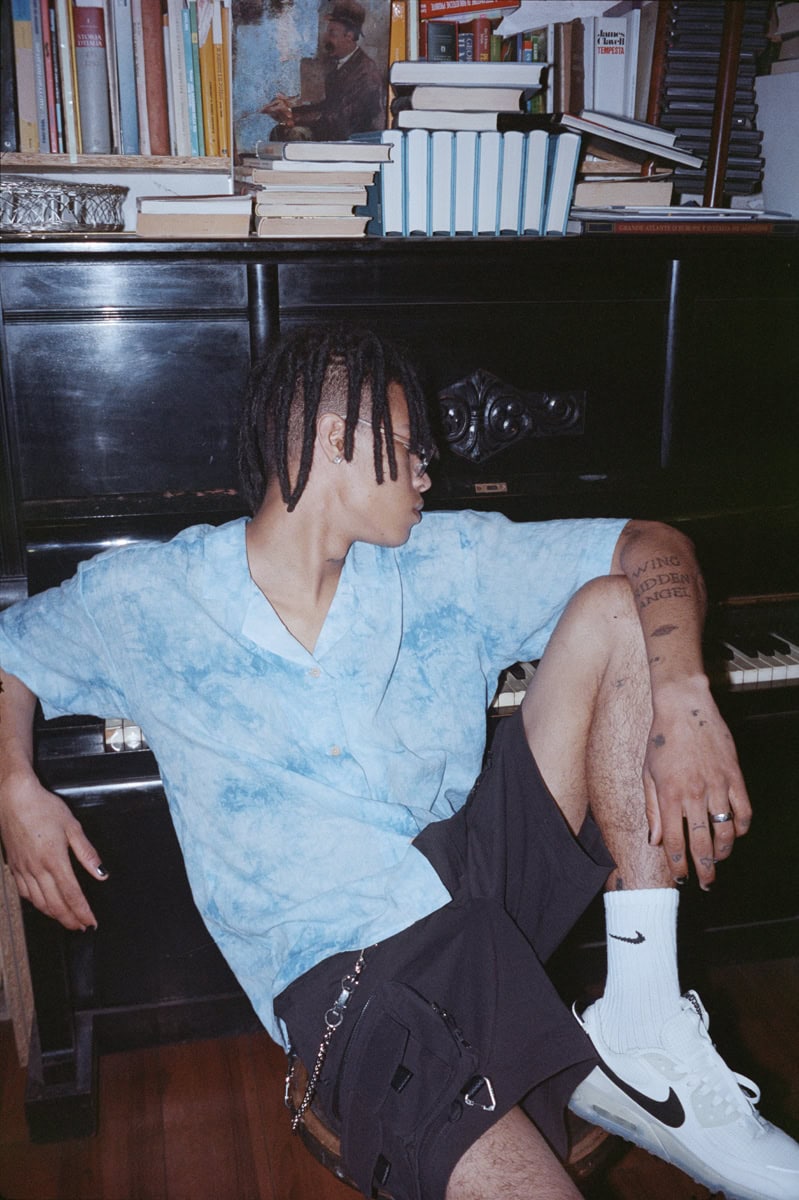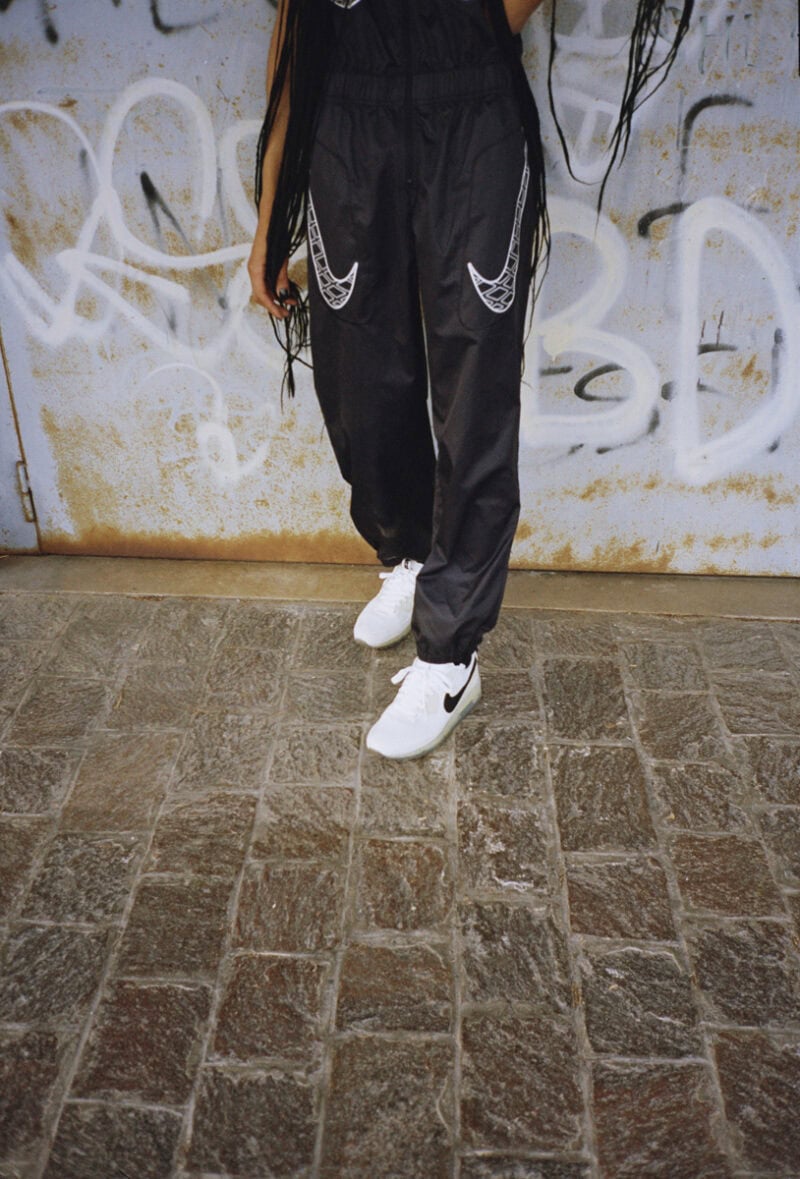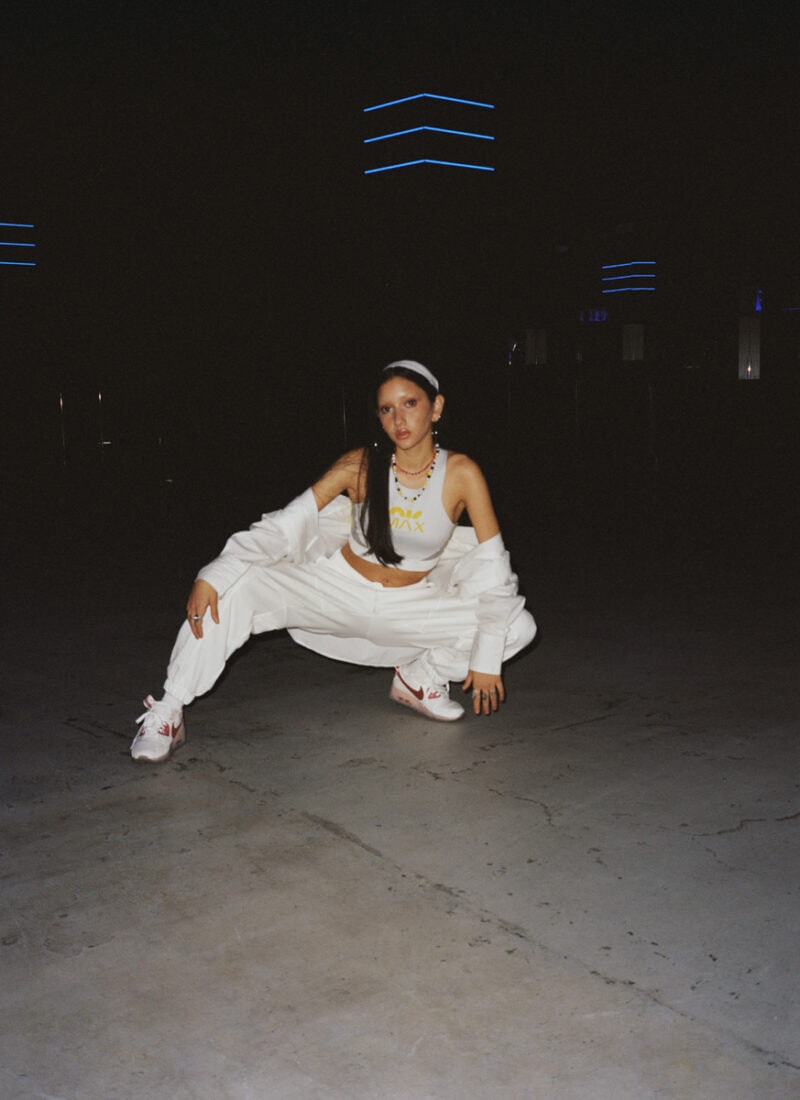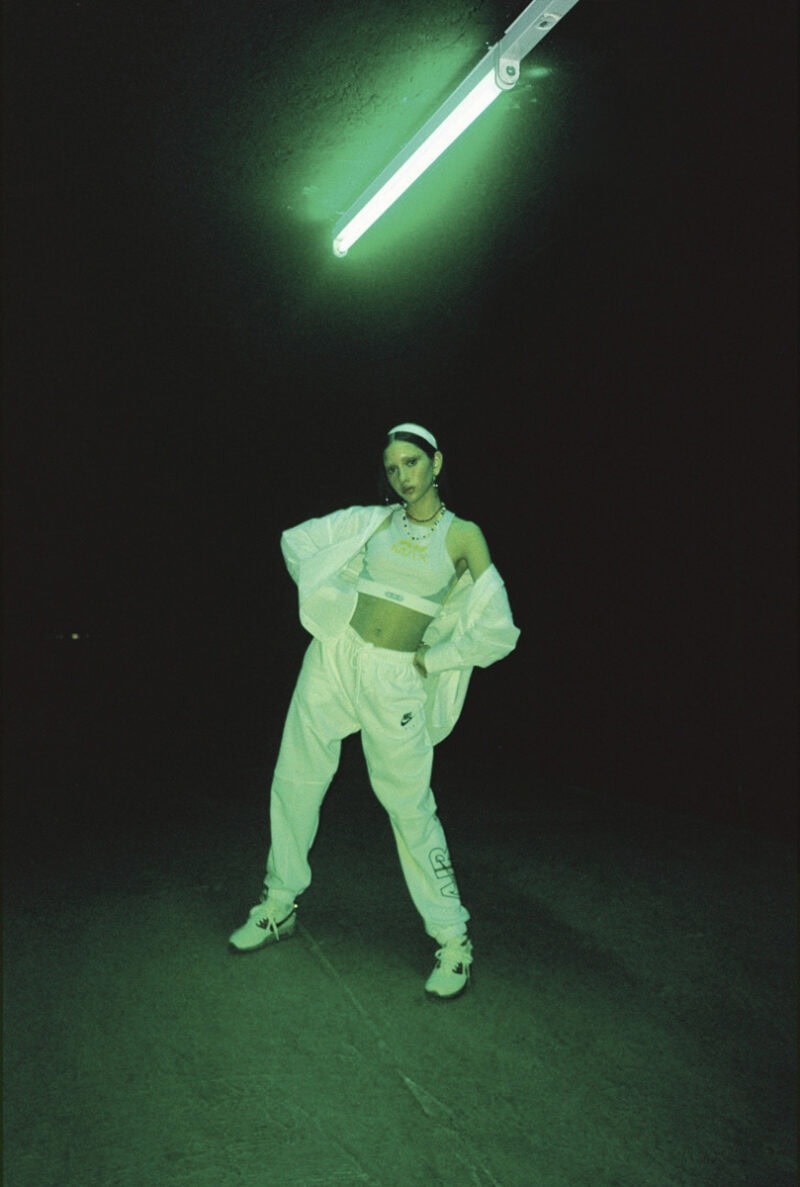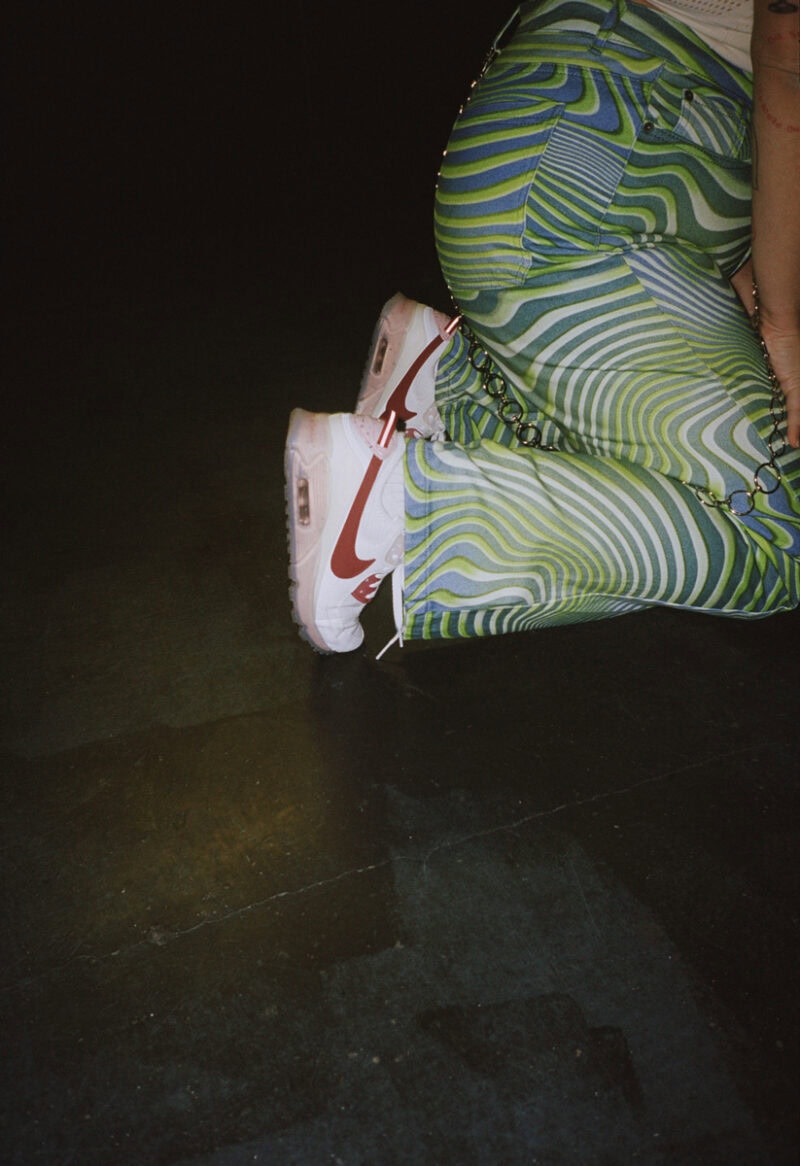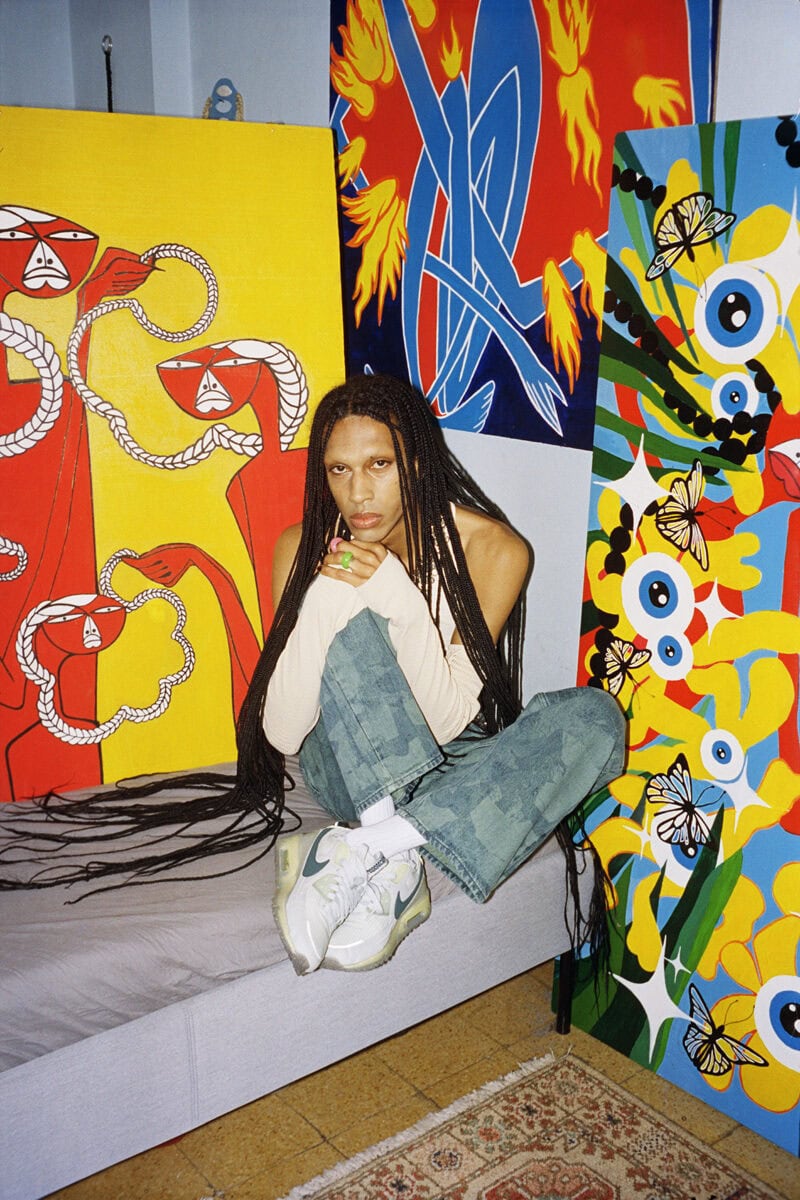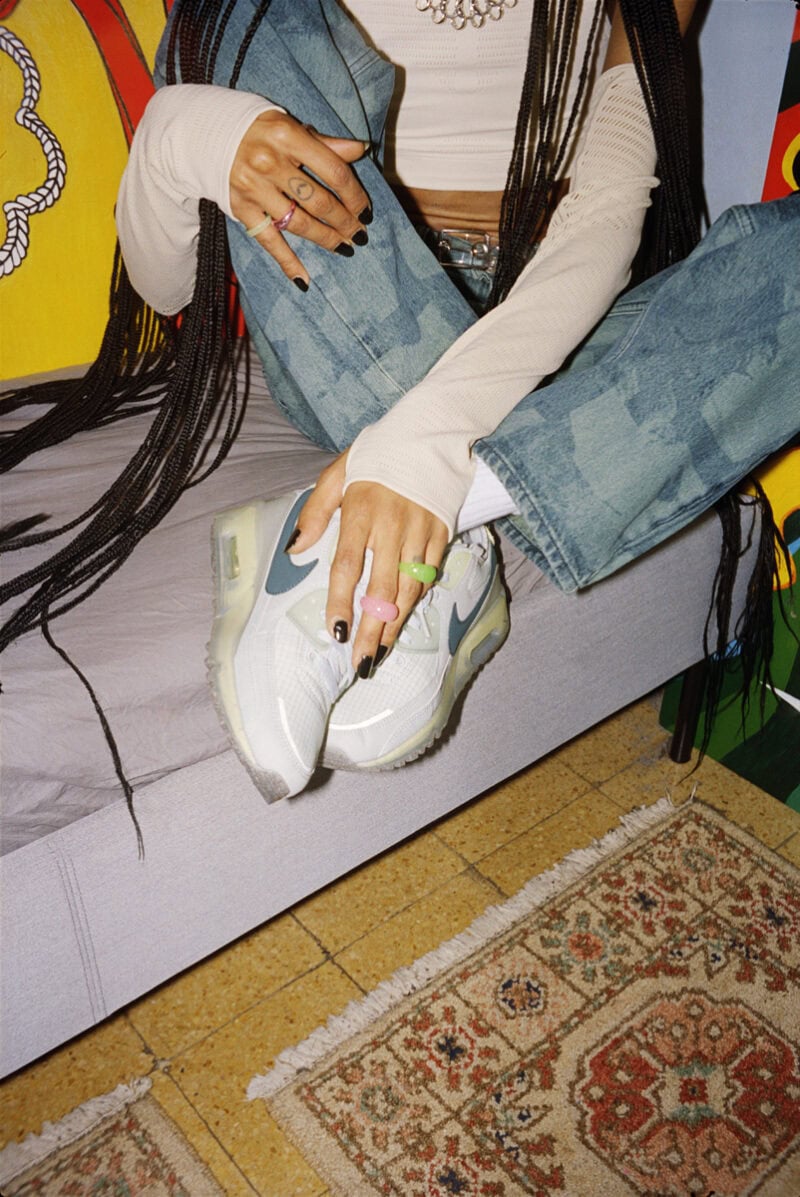This is a special project by C41 Magazine in collaboration with Nike.
The world looks at them and doesn’t understand. They have their own stages in which it’s not easy to be invited. They have found their place and they are holding on to it. It no longer matters where, but why. Their community is an integral part of them, making sure they never feel lonely. Yet no one stops them on the street. These are the young talents of Generation Z—the unknown generation —who aren’t afraid to be different. What does “different” even mean anyway? Aren’t we all different? That’s how it should be. No more labels or definitions. We are who we are, part of the same story. And if I recognise in yours, I don’t need to focus on how you’re dressed or howyou look like. I just see that we’re the same. That’s what inclusion means. It has something to do with diversity becoming normality. Things change every day and if you stay still then you won’t understand. It is in these structures, which change faster than we do, that their art is hidden. Here that you discover new ways of expression and freedom. Because “there is no one way to be human and no way is better than any other” (Maurilio).
C41 had an idea where these people might be hiding and, together with Nike, began looking for the invisible: for stars that shine in daylight and sometimes remain unseen. They found Vanessa, a fashion student and dancer whose wrist movements will make your head spin, while you are hypnotised by her gaze. David, who dreams of bringing his family here, and in the meantime writes music with his head held high, never losing his bearings. Giulia, who wonders why everyone cares about her body so much, and all things considered, feels unique in her own normality. And finally Maurilio, whose hair touches the floor and draws all her dreams to come in the path she leaves behind. Each of them has a story that we think the world should know. Either way, they would tell it anyway.
Over the past 50 years, Nike has pioneered new ways of innovating to serve the future. And innovation is more than product: it is a mindset that combines science, art, and imagination. Nike’s approach is based on the belief that progress = new possibilities. There’s no formula that can map the shifting boundaries of sport and culture. This means that the creative possibilities are endless, and the potential for innovation is limitless. So why not create the inclusive future we all want?
VANESSA
Introduce yourself. Who are you? What do you do? What are your values?
I’m Vanessa Ruiz, I’m 21 years old and I study Fashion Communication and Styling. I would like to express all the imaginary worlds that occupy my head with what I do, giving them shape through fashion. In my free time, I like to dance: I dance in my room, in the bathroom—sometimes even in the kitchen in front of other people—and, occasionally, in clubs. For me, dancing is the most natural way for the body to express itself, not only physically, but conceptually too. It is both liberating and intrinsic to human nature. It is an integral part of us. Dance is the manifestation of what I consider to be my primary value: freedom. Then there’s love and loyalty too. I feel a strong bond with my community: dancing together gives me a burst of energy. Maybe we don’t talk much, but we create connections on another level.
What do you stand for? What is your goal in what you do?
I stand for freedom and self-expression in everything I do. I would like to change and re-invent the world around me, giving it a different shape. Dance helps me to be free, while I use fashion to release my ideas and pass them on to others. By doing so, perhaps they too might be free.
What are your reference points here in Milan and beyond?
It is difficult to identify a reference point for me. I would like to be one myself, but I don’t always succeed in that. I don’t have a great bond with Milan yet, but I’d like to make one. I love the natural places that pop up in the middle of the city. Like the Darsena, for example. On one side you have this artificial lake and animals, then you turn around, cross the street and you’re facing Milan—the world.
Why is your generation different? If it had a voice, what would it say?
My generation is different from the generations before us because for the first time it recognises suffering as a part of life and it doesn’t just try and show the good things. In this way, we also normalise the complicated, difficult and unpleasant—which are also the ones that “inspire” us the most. That’s why you might say that it is a generation that is inclusive towards life itself: everything is accepted and, in the end, everything makes sense. You just have to be able to recognise it.
How do you imagine the future? How would you like it to be different from the present?
I expect a future full of changes. Of change coupled with awareness, not because it “has to happen”. A different future, in some ways more tolerant. But I don’t like the verb “tolerate”, it suggests that there is something that doesn’t fit. I would like that “something” to become normal—to be included in the concept of normality… I would probably also wish for a quieter future. Without the weight of everything: of judgements, and thoughts. Just the lightness of time.
DAVID
Introduce yourself. Who are you? What do you do? What are your values?
My name is David, I am from Colombia and I’ve been in Italy for about two years. I am a waiter here, I work in the Navigli area. In my free time I produce music, play volleyball and basketball. The great thing for me is that I don’t have a schedule and that makes me feel free. I can always see my friends and do many different things. And this allows me to be creative in what I do, especially in music.
What do you stand for? What is your goal in what you do?
I want to convey my thoughts through my music—both suffering and happiness. The goal is to keep going, whatever happens. To show others that if you really want something you can achieve it. Music helps me to connect with others because I don’t usually talk much. I’m someone who likes to observe and to listen. The important thing is never stopping, never falling behind.
What are your reference points here in Milan and beyond?
I like Milan a lot. Every week I visit exhibitions, there are always so many. But my room is the place where I feel most at home: it’s my fortress, my castle. I live alone here as my family is back in my hometown. The aim is always to bring them here, or at least to help them from afar. My family is everything to me. They are my real point of reference and always will be.
Why is your generation different? If you had a voice, what would you say?
I think that thanks to social media we can reach many more people, but this is not necessarily a good thing. I often feel like people are too influenced by other people’s judgement and sometimes they stop doing something they like just because someone else says something bad about it. I wish we were all much more direct with our thoughts and at the same time truer to ourselves. We should not be afraid to be who we are—that should be the message.
How do you imagine the future? How would you like it to be different from the present?
I hope it gets better and better. I don’t think so much about it because, at the end of the day, what’s the point? You don’t know what’s going to happen, so your focus should be on the present. The most important thing for me is to keep working hard to get further and better all the time. That’s the only plan I have for the future.
GIULIA
Introduce yourself. Who are you? What do you do? What are your values?
I am Giulia, I am 26 years old and I work in communication. In general, I always try to work on projects that are based on inclusivity and that respect my values. When this isn’t the case, I am the person who stands up to talk about it. I believe that it is impossible to work on anything today without considering these issues. I think inclusion is the absolute protagonist of our time and, in everything I do, I fight to give it space so that it is always heard. I could say that I always try to be both the medium and the message of this kind of communication and it works pretty well.
What do you stand for? What is your goal in what you do?
As I said before, in my work I try to stick to projects that are 100% inclusive. In my opinion, we are on the right track: society is becoming more and more “tolerant”—although I don’t like that term. My goal is to make sure that inclusiveness isn’t just a compulsory quota in these projects but something each participant believes in: something real.
What are your reference points here in Milan and beyond?
I love living in Milan because I believe it is a really inclusive city. And an inclusive city is the best possible city. What I love about Milan is that it has developed across many levels, giving everybody the chance to find their place and to feel part of something. My favourite area is Sarpi. I think it is one of the strongest examples of diversity and inclusion in the city, and it should be an example for everyone. Sure, we live in a bit of a bubble in Milan: we don’t realise what it’s like in other parts of Italy and how controversial and difficult these issues still are. In short, I believe that my geographical reference points correspond to a system of values in which I recognise myself, and vice versa. Perhaps this is what it means to feel at home.
Why is your generation different? If it had a voice, what would it say?
The younger generation is much more educated on certain kinds of issues. Maybe because they grew up with them. As someone who straddles the line between Millennials and Generation Z, I am aware of the huge changes that have taken place in recent years. When I was growing up, a lot of comments were considered normal and it seemed like it was forbidden to get upset—you were automatically overreacting. Today, however, I feel more aggressive and more aware. Just think of catcalling: it was very common when I was young, but it’s definitely not anymore. I am happy to know that the new generations have this awareness.
How do you imagine the future? How would you like it to be different from the present?
I don’t know. What I do know is that I really trust the future generations a lot. I believe they will do their best to spread the values of uniqueness. So while we might still be mocked today, I am sure that won’t be a problem in the future. On the contrary, the things that are mocked today will be “cool” in the future. At least, that is what I hope for.
MAURILIO
Introduce yourself. Who are you? What do you do? What are your values?
My name is Maurilio, also known as Kobra Mulata. I’m 25 years old, I’m Brazilian and I came to Milan three years ago. I’m a model as well as an artist and a musician. My art is my mirror: it’s both strong and emotional, giving space to creativity and self-expression. I use very intense colours in my paintings, while my songs are more introspective. If you put it all together, you can join the dots of my personality and find out who I truly am.
What do you stand for? What is your goal in what you do?
In life, I’m a model, but during my free time, I also write songs and paint with acrylics. My style recalls illustrations. My goal in life is to represent myself and my community to the fullest. To inspire and be inspired. I stand for LGBTQIA+ rights and that’s the most important thing for me.
What are your reference points here in Milan and beyond?
After two years of the pandemic, my room is the place I feel most close to. It’s the place in which I have experienced the strongest emotions and where I created a lot. It’s my personal space, where I feel safe and where I can do whatever I want.
Why is your generation different? If you had a voice, what would you say?
I think our generation is different because we grew up with technology. The generation before us didn’t have the same tools that we have, like social media and all that stuff. I think we’re different because growing up with it can be a very good thing. Of course, it depends on how you use it. Technology was a very important thing for our generation because it really connected us to the world—to different countries and different points of view. So, we have more visibility compared to the generation before us, and that gave us a wider vision of the world.
How do you imagine the future? How would you like it to be different from the present?
I hope the future will be better than the present, of course. I hope that these two years of Covid-19 have taught us something and maybe will push us to be more united. We should come together more than before, because of the bad things that have happened to us.
Find out more about Nike Air Max Terrascape 90 Woman & Nike Air Max Terrascape 90 Man.
